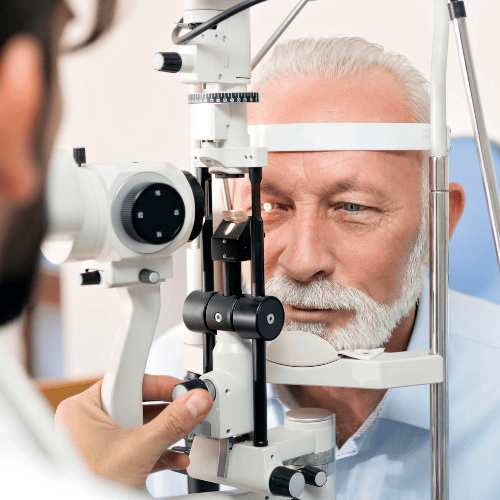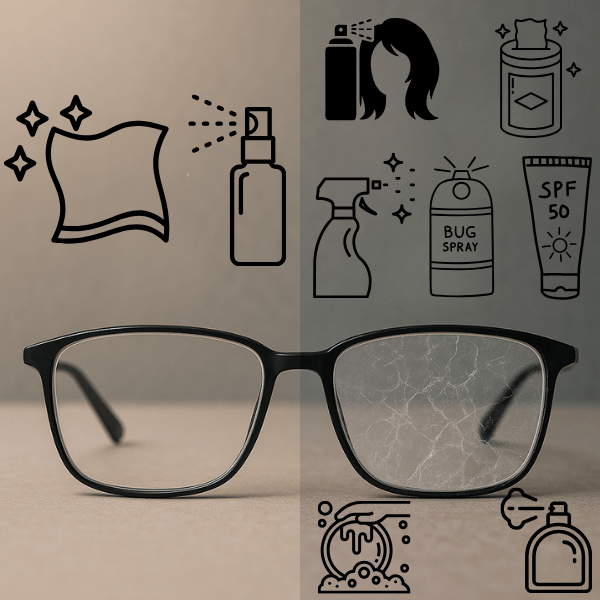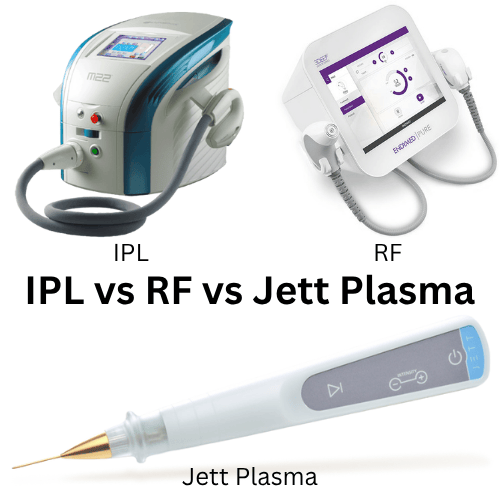Contact Lens Wearers Need Extra Care Annually
The first element in our Mission Statement at Mountain View Optometry is to “Protect your Vision”. For this reason our doctors will run additional tests and procedures each year to ensure that our contact lens wearers maintain healthy eyes and good vision.
The added stress on the eye’s surface when a contact lens is worn comes from three areas:
1) Less oxygen : Wearing a device on the surface of the eye does reduce the amount of oxygen the eye receives, making it more vulnerable to health problems on a number of levels.
2) More “bugs ”: The surface of a contact lens is like a net for various potentially harmful germs, including bacteria, viruses, fungi and protozoa (amoeba). These all have the potential to infect your eyes causing a variety of problems, some of which can be sight-threatening.
3) Rubbing : A contact lens actually sits on a thin cushion of tears, not directly on your eye. Depending on factors like where you live (dry vs. wet environment), what you do (computer use etc.) and how long you wear your contacts, this tiny tear-cushion may be too thin, resulting in mechanical abrasion or trauma from direct lens-to-eye contact.
A contact lens wearer with problems in some or all of these areas may have symptoms such as dryness, discomfort, redness, discharge (mucous or other sticky substance in and around their eyes) or blurred vision. It is also possible that he or she may have no symptoms at all .
Our optometrists make use of specialized testing to find out if you are at risk for problems from contact lens wear. Here’s a list of the tests and procedures you can expect at Mountain View if you wear contact lenses:
- Risk assessment profile : a full-time contact lens wearer will be at greater risk than an occasional wearer. You’ll also be asked about how often you discard your lenses and replace with a fresh pair, what kind of solution you use, and what kind of visual tasks you wear your contact lenses for.
- Corneal topography : this is a specialized test done by our technicians that captures an image (like a topographical map) of the surface of your cornea, the tissue the contact lens sits on. Changes in corneal topography from visit to visit can be a red flag for problems.
- Visual acuity with your contacts : this is where we test “how low on the chart you can read” with your contacts in.
- Microscopic assessment : your doctor can tell if your eyes are stressed from contact lens wear by looking at your eyes with high magnification and a specialized light. He or she may also use a special dye (called a fluorescein test) to check for hard-to-see dry spots from rubbing, or early infections or ulcers. You may be asked to put your lenses in so your doctor can check the fit and make sure it’s optimal.
- Refractive assessment : a contact lens prescription is different from an eyeglass prescription. Your doctor needs to decide, after testing your eyes, how to modify your contact lenses to provide the best vision for all your daily tasks.
We’ll discuss all our findings with you after your testing is completed, and possibly give you recommendations to lower your risk profile. You may benefit from a re-fit into a higher tech contact lens material, replacing your lenses more frequently or just by using a new solution system.
Be sure to see us once per year – tracking changes annually puts us in the best position to proactively manage any eye health concerns before they develop.
– Dr. Wilk














